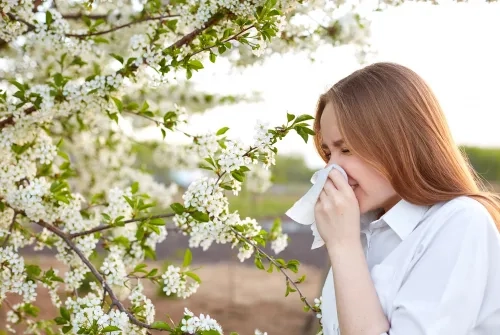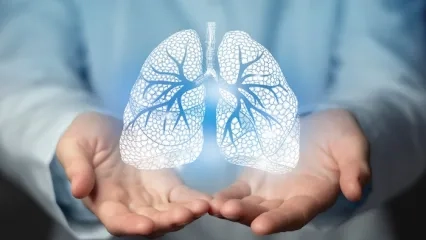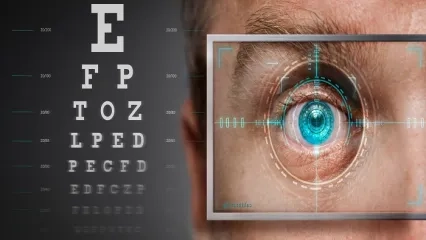Alo Yeditepe
Alo Yeditepe
Pollen is Now Seen Outside of Seasonal Changes
We are looking forward to summer in this period, but for people with an allergic constitution, spring brings great problems. While nature is waking up, many allergens, especially pollen, are thrown around, causing the diseases of people who have allergy problems to flare up.
With the arrival of spring, nature is waking up again, colorful flowers are blooming, birds are chirping… So far so good, but what about the diseases caused by pollen flying in the air? Do those who have a hard time with these diseases have the same feelings? In the human body, the chain of reactions that occurs as a result of the formation of an antibody called IgE in the first encounter against many substances such as house dust mites, pollen, some foodstuffs, cat-dog hair, fungal spores in the environment, and then the release of many chemicals through the IgE-allergen complex in some organs when these allergens are encountered again, is defined as "allergy". The nose, eyes, lungs, and skin can be most affected by this condition. After the cold and rainy months of March and April, we received the opinions of our experts about seasonal allergies, treatment methods and measures to be taken against them, which showed their effect more in May.
You Need to Recognize Allergens
While house dust and similar allergens cause allergies throughout the year, tree pollen occurs in the spring, so allergic problems in this period are called "spring allergies". Stating that the most common seasonal allergic rhinitis known as "hay fever" in these months, Yeditepe University Chest Diseases Specialist Prof. Dr. Banu Musaffa Salepçi: “Patients complain of sneezing, itching in the nose and throat, nasal congestion and runny nose, especially when they wake up in the morning. Although it is most common at the ages of 20-40, it is more likely to occur in those with a family history of allergies. It is usually caused by very small, airborne, barely visible pollens, tree pollens, and allergens such as herbs and grains. Nasal complaints are usually accompanied by redness (conjunctivitis) and swelling of the eyes.”
In the diagnosis of allergy, IgE antibody is examined in the blood, and allergy tests are performed. Although it is not possible to completely eliminate the disease, treatment is being applied to eliminate the complaints. Drawing attention to the use of drugs called antihistamines, which eliminate the effect of substances such as histamine secreted in the body through IgE when an allergen is encountered, Prof. Dr. Salepçi gives the following information: “In addition, sprays containing cortisone applied inside the nose and eye drops with cortisone for eye complaints also stand out in the treatment. Vaccine treatments to make the body insensitive to the allergen can also be applied to selected patients whose complaints cannot be controlled with these treatments, and who repeat very frequently."
Triggers Asthma
Drawing attention to the fact that allergy is the main cause of asthma, which is a respiratory disease that occurs with shortness of breath attacks and that patients can return to normal completely except for attacks, Prof. Dr. Salepçi: “Substances that are released through IgE antibody when exposed to the allergen lead to edema, inflammation, and respiratory muscle spasm in the respiratory tract mucosa. Complaints such as cough, shortness of breath, wheezing, wheezing, burning in the chest, and a sound similar to whistling while exhaling occurs in the patient. Apart from attacks, patients usually do not complain.”
Asthma, which has a prevalence of 5-10 percent in the community, can occur at any time of life, and the first complaints often appear before the age of 25. It is rarely seen at an advanced age. Although the disease usually disappears in adolescence when it occurs in early childhood, it can lead to intense exposure at later ages. While asthma is more common in patients with allergic rhinitis, the presence of this disease in the family increases the risk of allergies.
Prof. Dr. Salepçi: ''Asthma may occur due to chemicals exposed for occupational reasons. Although complaints are common during the allergy season, they can also be triggered by factors such as air pollution, smoking or exposure to cigarette smoke, viral infections, and excessive stress. In such periods, common airway spasms may occur during the examination of patients. The diagnosis is made by IgE examination in the blood, allergy, and respiratory function tests.”
It Can Also Affect the Eyes
In addition to the usual allergy problems in the spring, some problems affecting eye health can also be encountered. Yeditepe University Eye Disease Specialist Prof. Dr. Sinan Tatlıpınar: ''Combined treatments are generally applied in the treatment of this disease, but the basic principle is to stay away from the factor that causes allergies. Intensive air pollution is an important factor that increases allergies. Allergic conjunctivitis, which is manifested by redness, watering, and itching of the eyes, is very common. The disease basically refers to the inflammation of the membrane called the conjunctiva, which surrounds the inside of the eyelids and the white part of the eye and develops due to allergies.”
Causal Treatment is Applied
Allergic conjunctivitis is actually a general term that describes a group of diseases. Subtypes include seasonal allergic conjunctivitis, perennial allergic conjunctivitis (prolonged allergic conjunctivitis), vernal keratoconjunctivitis, atopic keratoconjunctivitis, and giant papillary conjunctivitis. Emphasizing that the disease usually affects both eyes together, Prof. Dr. Tatlıpınar lists other symptoms as follows: “Itching and redness in the eyes, burning sensation in the eye, swelling in the eyelids, watering in the eyes. However, depending on the type, there may be changes in these symptoms. In advanced cases, it can also lead to vision problems if the transparent layer (cornea) is affected.” In the diagnosis, the patient's complaints, a careful examination, and some laboratory examinations are important. The treatment, if known, is to avoid the cause of the allergy. Stating that combined treatments are generally applied, Prof. Dr. Tatlıpınar: “According to the type and severity of the disease, anti-allergic antihistamine drops, and cortisone-containing drugs are used, which are always under the control of the doctor when necessary.”
Beware of Dryness and Itching on the Skin!
Allergic skin diseases describe a series of clinical manifestations ranging from dermatitis (eczema) to urticaria (hives). Dermatitis sometimes occurs due to substances that come into direct contact with the skin (contact dermatitis), sometimes called atopic eczema, which is manifested by the development of dryness, itching, and sometimes watery areas of the skin. In urticaria, the development of red, puffy, and itchy plaques on the skin comes to the fore. In addition, skin involvement occurs almost always and primarily in allergic reactions due to food and drugs.
Inherited Factors May Come to the Fore
In the early spring, tree pollen and later grassland pollen are densely present in the air. Underlining that pollens, which can spread for miles, cause complaints such as runny nose, itching of the nose, sneezing in succession, itching and watering of the eyes, shortness of breath, and wheezing in patients with respiratory allergies, Skin Diseases Specialist Prof. Dr. Mehmet Oktay Taşkapan: “There is a hereditary-structural predisposition in these patients. Not everyone has an allergic reaction to pollen. This type of reaction occurs only in people with atopic structures. Respiratory allergy accompanies atopic eczema in many patients. During the pollination period, increases in both skin and respiratory complaints can be observed in patients with pollen allergies, especially in cases with atopic eczema.”
What Should You Do to Protect Your Skin?
There are several issues that patients with allergic structures should pay attention to during pollination periods. Prof. Dr. Mehmet Oktay Taşkapan emphasizes that there will be a decrease in complaints if the following suggestions are taken into consideration.
- Stay outside as little as possible in hot, dry, and breezy weather.
- Remember that pollen density is at its highest after sunrise and in the evening.
- During the pollen season, do not take part in outdoor activities such as strolling, picnics, or gardening.
- Wear sunglasses during pollen season even if you are not wearing glasses.
- Do not leave your windows open at night.
- Do not dry your laundry outside.
- If you have long hair, wash your hair every day.
- Make sure that the windows are not open when driving your car.
About
Faculty and Year of Graduation:
İstanbul University, Çapa Faculty of Medicine, 1984
”
See Also
- What is Cataract? Symptoms and Treatment
- What is Tuberculosis (TB)? Symptoms and Treatment
- Circadian Rhythm Disorder
- What is Good for Cough? How to Cure Cough?
- What Should Asthma Patients Be Cautious About?
- Does Poor Quality Sleep Increase The Risk of Asthma?
- Causes of Hair Loss
- Itching can be a Symptom of Another Disease
- What is Allergy? What are Allergy Symptoms?
- Watch Out Blue Light Emitted By Devices For The Health of Your Eyes
- Do Not Underestimate Itching!
- Intense Stress Makes Hair Ringworm
- Urticaria Decreases the Quality of Life
- COPD Makes You Age Early
- It Is Aimed to Eliminate Tuberculosis Worldwide By 2030
- How Should We Protect Our Skin During the Summer Season?
- Do Dental Caries Increase the Risk of Pneumonia?
- Smoking Rates Under the Age of 15 Are Increasing
- Inhaling Electronic Cigarettes for a Few Minutes Causes Damage to Vein Wall
- People Who Smoke More Than 25 Cigarettes a Day Have a 50-fold Increased Risk of Lung Cancer
- Can Back Pain Be A Sign of Lung Cancer?
- Nine Out of Ten COPD Patients Do Not Know They Are Sick
- Quitting Smoking Even After Diagnosing Lung Cancer Effects Lifespan
- Electronic Cigarettes Can Cause Heart Attacks!
- Pollen Allergy Has No Season
- Beware of Little-Known Risks of Smoking!
- Pay Attention to the Flashing Light in the Eye!
- Acne and Diet
- Medication Administration to the Eye
- Lung Cancer
- Thyroid-Related Eye Diseases
- Glaucoma
- Does the Pneumonia Vaccine Protect Against the Coronavirus?
- If You Have Diabetes, Consult An Ophthalmologist At Least Once A Year.
- It was Told that She could Lose Both Eyes, but She Recovered with an Operation
- The Danger to the World: MYOPIA
- Eyelid Diseases
- Are Flies Flying Before Your Eyes?
- 7 Tips to Protect Your Eye Health
- Allergic Conjunctivitis (Eye Allergy)
- In Case You Are Unable To Sleep Even If You Are Tired, Your Circadian Rhythm May Be Disrupted
Alo Yeditepe








